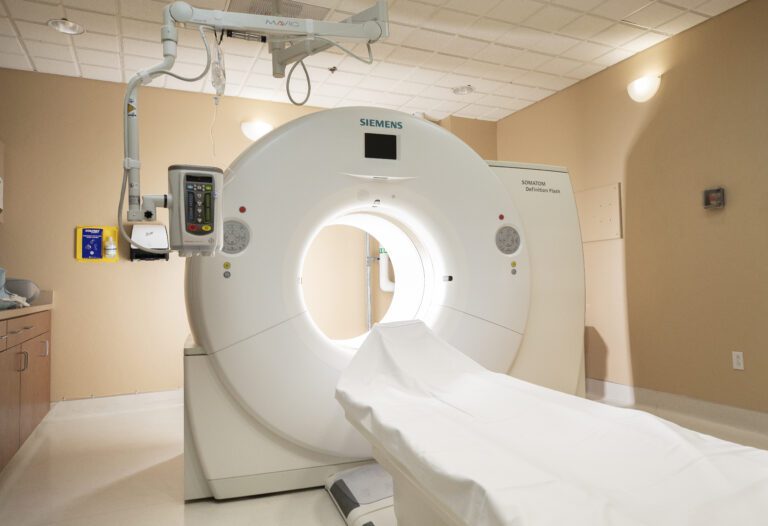At least 48 hours prior to your procedure, you will need to pick up a prep kit from Camp Lowell Imaging Center (our only center where CT colonography is performed). A technologist will go over all of the instructions and will answer any questions you may have. The prep starts with a low-residue diet two days before the exam, with a liquid-only diet and a bowel prep consisting of stool softeners, laxatives, and barium contrast agents the day before your exam.
You should continue medications prescribed by your doctor or healthcare provider unless informed otherwise. Diabetic patients may need to delay their medication on the morning of the exam until after they have eaten in order to avoid an insulin reaction.
After you arrive for your appointment, you will be escorted to a procedure room, where you will be asked to change into a patient gown. You should remove all jewelry and other removable items such as glasses, dentures, and hearing aids. Women should always inform their technologist if there is any possibility of pregnancy. You will not be sedated for this exam because you will need to follow breathing instructions while the images are obtained.
During the exam you will lie on a table that moves into the doughnut-shaped scanner. A small tube will be inserted into the rectum, and a balloon will be inflated to help hold the tip in. The colon will then be filled with carbon dioxide gas, which can cause feelings of abdominal fullness, cramping, and discomfort that can last for several hours after the exam is completed. This inflation is necessary so that the radiologist can adequately evaluate the walls of the colon for possible polyps.
Once the colon is distended, you will be given instructions regarding breath holding. Two sets of images will be obtained, the first with you on your back and the second with you on your stomach. Your technologist will watch you through an observation window and will be able to communicate with you at all times. CT scans are non-invasive and painless, though you will hear humming, buzzing, or clicking sounds as the CT machine moves to position you. It is very important to follow all instructions and remain still during scanning in order to obtain clear images.
The entire procedure usually takes 20-60 minutes, depending on how long it takes to fill your colon with the carbon dioxide gas. You can resume your normal activities after the exam and can return to your usual diet unless otherwise instructed.
For your safety and the protection of others, we do not allow anyone other than patients in our exam rooms.
After your study, the images will be evaluated by one of our board-certified radiologists with expertise in CT colonography. A final report will be sent to your doctor or healthcare provider, who can then discuss the results with you in detail.
Reports are also available on the Patient Portal


